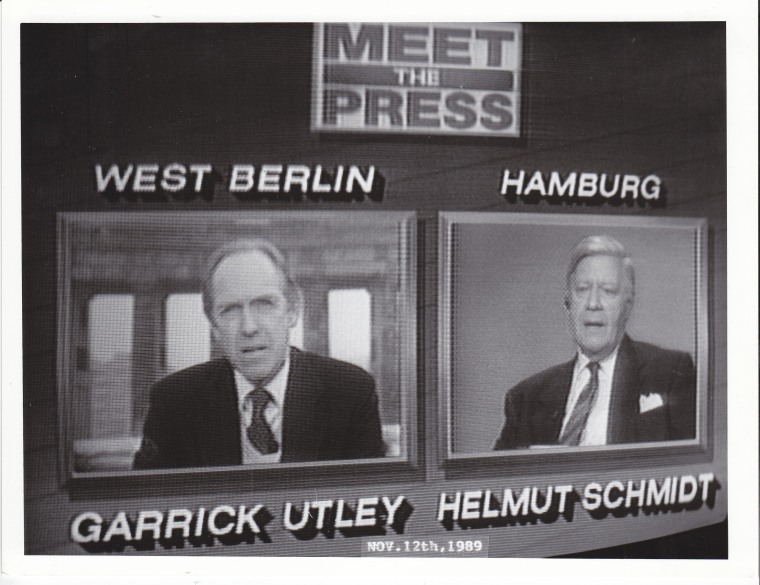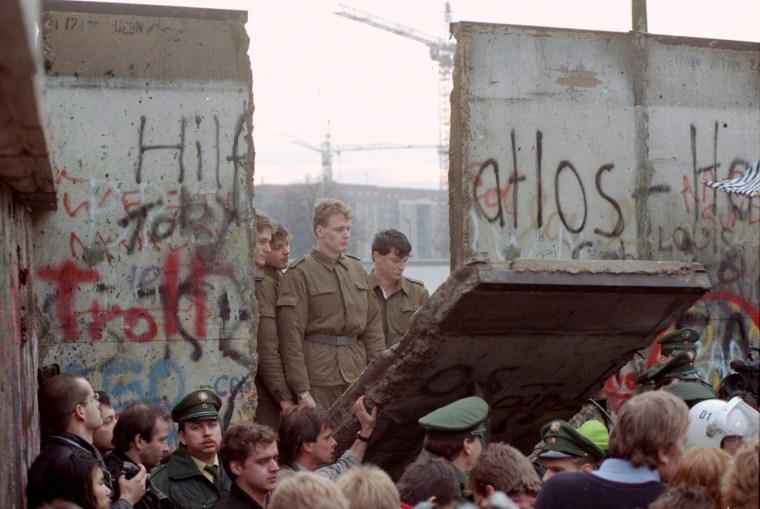Soviet Communist Party official Nikolai Shishlin appeared on Meet the Press on December 4, 1988, two days before the fifth and final meeting between President Ronald Reagan and Soviet head of state Mikhail Gorbachev on Governors Island, New York Harbor.
“We must consider Gorbachev’s visit to the United States as a Christmas gift to the American people and to mankind,” Shishlin said. “I am quite sure that Mr. Gorbachev will have in his pocket very interesting ideas, very interesting initiatives.”
Shishlin was right. In a December 8 speech at the United Nations in New York, Gorbachev stunned the world by announcing massive unilateral cuts to Soviet forces in Eastern Europe, effectively ending the threat of a Soviet invasion of Western Europe.
Gorbachev spoke of his policies of glasnost (openness) and perestroika (restructuring), which were “gaining momentum” and changing the world. Before Christmas 1989, peaceful revolutions had overturned communist governments in Poland, Hungary, Czechoslovakia, and Bulgaria. Violent and bloody unrest had toppled Romania’s Nicolae Ceausescu. And on November 9, the Berlin Wall, symbol of the Cold War since 1961, fell.

Garrick Utley introduced Meet the Press from Berlin’s Brandenburg Gate, “the front line of the Cold War…the dividing line between East and West,” two days after the wall was breached. He asked former chancellor of West Germany Helmut Schmidt to describe his feelings. “I felt a great joy in my heart,” Schmidt said, “and I think most Germans did.” Asked about the possible reunification of East and West Germany now that East Germany was allowing its citizens to cross freely into the West, Schmidt said: “I think that reunification is going to happen someday in the future, maybe even in the next century.” On the same program, Secretary of Defense Dick Cheney stated that “reunification ought to be supported by the West.” The seemingly impossible was becoming routine, and Germany was reunited within a year.
The initial US response to the revolutions of 1989 was cautious. On April 23, Cheney outlined his position on Meet the Press: “I have been a real skeptic about Mr. Gorbachev, but I am increasingly persuaded that he is for real in terms of his determination to make changes inside the Soviet Union…But I think we have to be very careful about basing our strategy upon what may or may not be a temporary aberration in Soviet behavior.” He said arms reduction should wait until “a kinder, gentler Soviet Union, if you will, is in fact permanently less threatening.”
A year after the Reagan-Gorbachev meeting on Governors Island, President George H.W. Bush and Gorbachev held a summit conference on the Soviet cruise ship Maxim Gorky, moored off the Mediterranean island of Malta. Meet the Press came from Malta on December 3, 1989, the second day of the summit, and National Security Advisor Brent Scowcroft sounded hopeful but still cautious: “I think that there’s no question that we’re in a new phase. The world in which we all grew up and know—so familiar, the kind of confrontational world between the United States and the Soviet Union—is changing. The post–World War II world is collapsing about us, and I think it's premature to say what will follow.” As if to confirm his point, Garrick Utley opened the second part of the program by announcing: “We’ve just received some startling news from East Germany…The entire Politburo, the Central Committee, the leadership of the Communist Party, has resigned.”
History was on the move. At the end of the Malta summit, the two leaders declared the Cold War epoch over. On Christmas Day, 1991, the hammer and sickle flag was taken down from the Kremlin, and the Soviet Union was no more.
